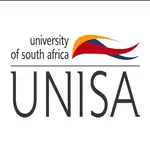UNISA Microbiology Course Module 2026-2027
The Microbiology program at UNISA offers a detailed and comprehensive curriculum, providing students with a deep understanding of various aspects of microbiology, from the basic to the advanced levels. Here is an overview of some of the key modules:
Key Modules
Microbial Diversity – MIB3703
Level: NQF 7
Credits: 12
Purpose: Understand microbial diversity, characteristics of prokaryotic groups, fungi, and various types of viruses.
Microbiology III (Practical) – MIB3704
Level: NQF 7
Credits: 12
Purpose: Hands-on experience in microbial metabolism, enzyme activity, waste treatment, DNA characterization, and bacterial conjugation.
Advanced Medical Microbiology – LSH4801
Level: NQF 8 (Honours)
Credits: 24
Purpose: Study pathogens such as bacteria, viruses, prions, and fungi with a focus on zoonotic transfer, vaccine development, and epidemiology.
Advanced Industrial Microbiology and Biotechnology – LSH4802
Level: NQF 8 (Honours)
Credits: 24
Purpose: Explore beneficial uses of microbes in enzyme production, waste upcycling, and GMO development.
Introductory Microbiology – MIB2601
Level: NQF 6
Credits: 12
Purpose: Gain foundational knowledge in microbiology, cell organization, bacterial growth, and control methods.
Microbial Ecology – MIB2602
Level: NQF 6
Credits: 12
Purpose: Understand microbial communities in ecosystems, their role in nutrient cycling, and application in wastewater treatment.
Introductory Microbial Genetics, Immunology, and Epidemiology – MIB2603
Level: NQF 6
Credits: 12
Purpose: Study genetic code structure, immune system functioning, and epidemiological control of infectious diseases.
Microbiology II (Practical) – MIB2604
Level: NQF 6
Credits: 12
Purpose: Develop technical skills in microbiology and immunology experiments, observation, and reporting.
Microbial Physiology – MIB3701
Level: NQF 7
Credits: 12
Purpose: Understand microbial metabolism, energy generation, and metabolic pathways in microorganisms.
Advanced Microbial Genetics, Recombinant DNA Technology, and Industrial Microbiology – MIB3702
Level: NQF 7
Credits: 12
Purpose: Explore genetic recombination processes, genome analysis, microbial use in industrial processes, and bioremediation.
Admission Requirements
Eligibility: Open to applicants who have received an offer of placement from Unisa and accepted it online.
Registration Period: For the 2023 academic year, as per the university’s schedule.
Learning Mode
The program is presented using both online and distance learning modes.
Career Prospects
Graduates can look forward to careers in various sectors including healthcare, biotechnology, environmental management, and research. The program equips students with both theoretical knowledge and practical skills crucial in the field of microbiology.
Additional Information
Co-Requisites and Pre-Requisites: These are essential for successful completion of certain modules.
Experiential Learning: Some modules, especially practical ones, offer hands-on learning experiences in real-world scenarios.
The program is designed for those who wish to pursue a career in microbiology, providing a mix of academic and practical exposure to prepare students for challenges in the field.
Share This





